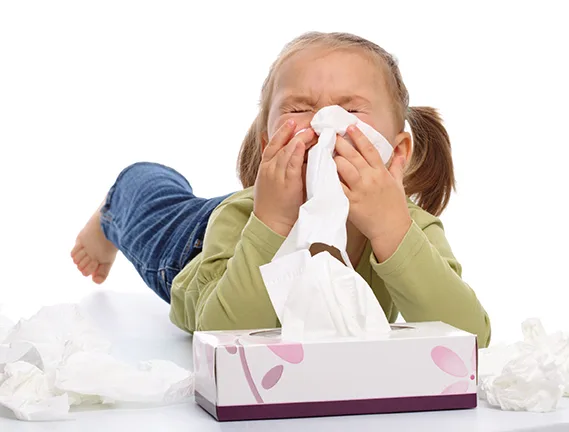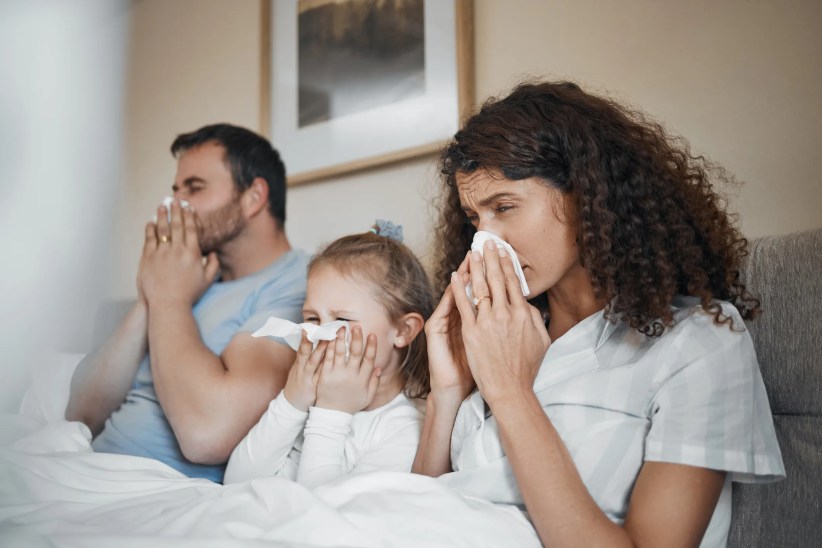Enterovirus D68 (EV-D68) is a virus that has presented in mor than 40 states in the U.S., making more than 500 people very ill. Here are the facts you need to know, from preventing EV-D68 and keeping your kids healthy, to its symptoms, and how to treat it.
 This year a little known virus has presented in more than 40 states in the U.S., making more than 500 people very ill. Below, learn more about what enterovirus is and how you can protect yourself and your children.
This year a little known virus has presented in more than 40 states in the U.S., making more than 500 people very ill. Below, learn more about what enterovirus is and how you can protect yourself and your children.
What is EV-D68?
Enterovirus D68 (EV-D68) is one of more than 100 viruses classified as “non-polio enteroviruses” that circulate in the U.S. each year. The virus is known to cause mild to severe respiratory illness. While it has been present in the population since 1962, EV-D68 is making a larger impact on children around the U.S. this year.
EV-D68 can only be diagnosed by doing specific lab tests on specimens from a person’s nose and throat. While hospitals and some doctor’s offices can test patients to see if they have an enterovirus infection, most cannot specifically test to determine the type of enterovirus.
Because of the unusually large number of cases in the U.S. this year, the CDC has recommended testing for patients with severe respiratory illness when the cause is unclear.
Symptoms of EV-D68
Symptoms can range from mild to severe with more serious symptoms being experienced by children with pre-existing respiratory illness. Mild symptoms may include fever, runny nose, sneezing, cough, and body and muscle aches while more severe symptoms may include wheezing and difficulty breathing. It is recommended that anyone with respiratory illness should contact their doctor if they have difficulty breathing or if their symptoms worsen.
How Do You Get EV-D68
The virus can be found in an infected person’s saliva, nasal mucus, or sputum. EV-D68 spreads from person to person when an infected person coughs, sneezes, or touches a surface that is then touched by others.
Enterovirus infections are much more common in the summer and fall. Cases are likely to decline in the winter.
In general, infants, children, and teenagers are most likely to get infected with enteroviruses and become ill. That’s because their immune systems have not been fortified by previous exposures to these viruses.
Treating EV-D68
There is no specific treatment for people with respiratory illness caused by EV-D68.
For mild respiratory illness, you can help relieve symptoms by taking over-the-counter medications for pain and fever however aspirin should not be given to children. In the case of severe respiratory illness, your child may need to be hospitalized. There are currently no antiviral medications available for people who become infected with EV-D68. Parents of children with asthma should be sure to discuss emergency asthma preparations with their child’s pediatrician.
Preventing EV-D68
You can help prevent yourself from becoming ill and spreading EV-D68 and other respiratory illnesses by following some common sense precautionary measures.
- Encourage children to wash their hands often with soap and water for 20 seconds.
- Discourage them from touching their eyes, nose and mouth with unwashed hands and be sure to avoid close contact (such as kissing, hugging, and sharing cups or eating utensils) with people who are sick.
- Teach your child to cover their coughs and sneezes with a tissue or shirt sleeve, not their hands.
- Clean and disinfect frequently touched surfaces, such as toys and doorknobs, especially if your child becomes ill or someone else in the home is sick.
- Keep sick kids at home. It helps viruses from spreading and allows your child to recover more quickly.
Additional illnesses can worsen enteroviruses so getting a flu shot, while not a prevention of EV-D68, will likely protect your child from the added risk that EV-D68 would present if the flu were contracted at the same time.
If you notice signs or symptoms of enterovirus, consult your child’s doctor. If you are concerned, go with your gut. This virus has proven itself fast acting and can become deadly overnight if left untreated.
Beth N. Davis writes from Silver Spring, MD, where she and her husband are raising their four children.





















